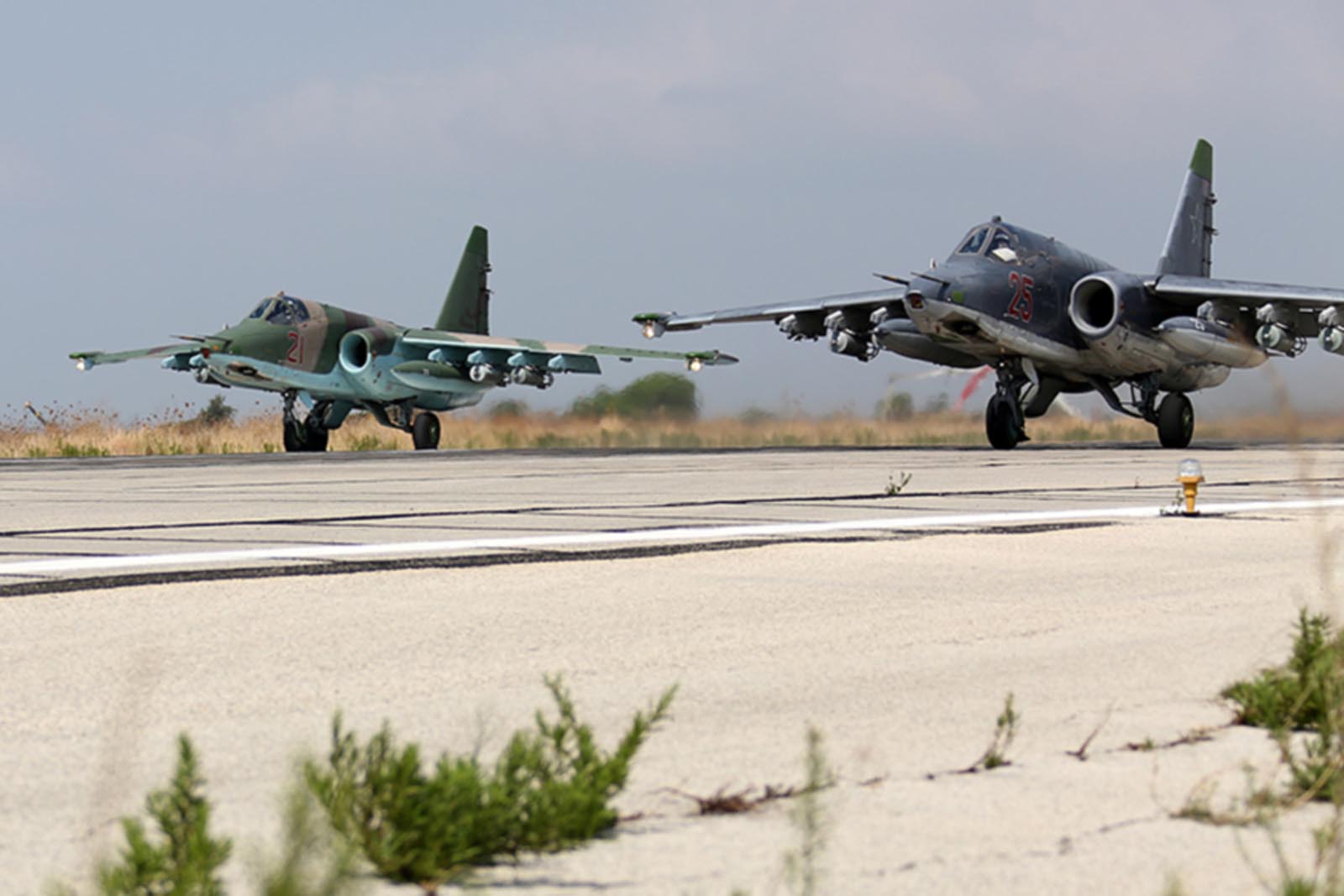By M K Bhadrakumar
The reverberations of the US missile attack in Syria on Thursday are inexorably felt in the geopolitical arena. A series of developments through the weekend signals that the Syrian conflict is entering a new phase. The most consequential development was a phone conversation Sunday afternoon between Russian President Vladimir Putin and his Iranian counterpart Hassan Rouhani, at the latter’s initiative, to discuss the emergent situation in Syria and in the region.Earlier in the day, Rouhani also had spoken with Syrian President Bashar Al-Assad to assure him of full Iranian support. On a parallel track, the Iranian and Syrian military chiefs also confabulated on Sunday. Prior to that on Saturday, Chief of Staff of the Iranian Armed Forces General Mohammad Hossein Baqeri and the Russian Chief of General Staff General Valeri Gerasimov discussed the Syrian situation. They vowed to continue their military cooperation in support of Assad “until the total defeat of the terrorists and those that support them” (according to the Iranian news agency.)
Again, on Saturday the chiefs of the Iranian and Russian national security councils, Admiral Ali Shamkhai and Nikolai Patrushev held a phone conversation to discuss Syria. Shamkhani hinted at intelligence available with Tehran that the chemical attack in Idlib on April 4 was executed “by a third party in order to create a pretext for carrying out a (US) military attack on Syria.” Broadly, Moscow and Tehran have voiced identical demands that an independent investigation must be conducted on the chemical attack in Idlib to establish the culpability. Both have strongly condemned the US missile attack as an act of “aggression” and a violation of the UN Charter and international law.The text of today’s Kremlin statement is reproduced below: On the initiative of the Iranian party a phone conversation between Vladimir Putin and President of the Islamic Republic of Iran Hassan Rouhani was held. … [The presidents] exchanged their views of the situation in Syria. Both parties pointed out the inadmissibility of US aggressive actions against the sovereign state in violation of the international law. Putin and Rouhani called for holding an objective, impartial investigation of all circumstances of the incident involving chemical weapons in the Syrian province of Idlib on April 4.
Particular importance was paid to the key aspects of the bilateral cooperation in the sphere of counterterrorism, a readiness to deepen cooperation in order to ensure stability in the Middle East was expressed. The Leaders also noted the importance to continue close cooperation on political and diplomatic settlement of the armed conflict in Syria.The statement hints at an intensification of the Russian-Iranian military operations in Syria. The intention could be to accelerate the liberation of areas still under the control of ISIS and Al-Qaeda affiliates. Importantly, Idlib province bordering Turkey is one such priority area. The extremist groups ensconced in Idlib still enjoy the backing of Turkey, and some of them used to be the CIA’s proxy groups.
Secondly, it is more than likely that discussions have taken place as to how to counter any future US attacks in Syria. Iranian media linked to Iran’s Islamic Revolutionary Guard Corps reported today on a statement by the so-called Syria-Iran-Russia Joint Operations Room, which coordinates the military strategies in Syria. The statement warned that any future US aggression will be “given a lethal response”. It said, “We will respond to any aggression powerfully, as Russia and Iran would never allow the US to dominate the world.”Significantly, the latest Iranian statements have referred to strategic cooperation among Iran, Syria, Russia and the “resistance front”. Today’s Kremlin statement pointedly touched on a mutual Russian-Iranian “readiness to deepen cooperation in order to ensure stability in the Middle East.” Taken together, Russian-Iranian military cooperation in Syria may assume new dimensions as a coordinated regional strategy.


